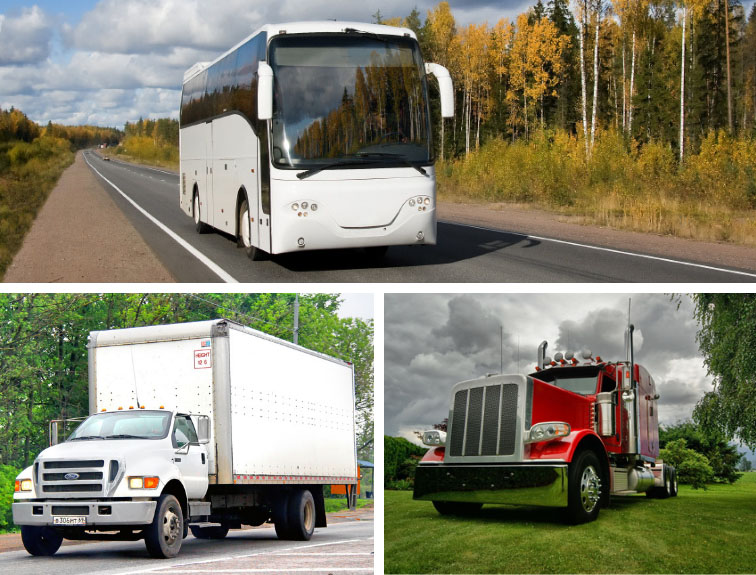There are two standard types of commercial drivers licenses (CDL’s) you can choose from, a Class A and Class B CDL. Each type of CDL will let you operate a different size vehicle, offering different career opportunities.
Explore the different types of CDLs so you can find what’s best for you!
Class A CDL
Your Class A CDL will allow you to operate any combination of vehicles that weigh at least 26,001 pounds or higher along with a vehicle that is getting towed that weights more than 10,000 pounds. Some of the endorsements that you receive with this CDL include:
- Tractor Trailers
- Truck and Trailer Combinations
- Double and Triple Trailers
- Tractor-Trailer Buses
- Tanker Vehicles
- Livestock Carriers
- Flatbeds
Your CDL Class A license may allow you to operate in some Class B vehicles depending on which state you reside in and the laws and regulations of the state.
Class B CDL
Your Class B CDL will allow you to operate any vehicles that weigh at least 26,001 OR have a vehicle that is getting towed that weighs more than 10,000 pounds. Some of the endorsements that you will receive with this CDL include:
- Straight Trucks
- Large Busses (i.e., City Buses, City Buses, Segmented Buses, etc.)
- Box Trucks (i.e., Delivery Drivers, Couriers, Furniture Delivery, etc.)
- Dump Trucks with Small Trailers
Knowing the type of driving job you’d like to have, will help you in deciding which CDL is best for you. As you can see, the job opportunities are endless with your Class A and Class B CDL!
Expand Your Job Options With Endorsements!
In addition to Class A and B licenses, a lot of driving jobs will require you to get extra endorsements. Let’s go through a few of these endorsements and how they might benefit you!
- H Endorsement: Required if you will be driving vehicles containing hazardous materials and includes a written knowledge test to receive the endorsement.
- N Endorsement: Permits drivers to drive vehicles with tanks on them and also requires a written knowledge test to receive the endorsement.
- P Endorsement: Permits drivers to drive vehicles that carry a specific number of passengers and requires a written test and a road test to receive the endorsement (actual number of passengers that can get carried varies by state).
- S Endorsement: Permits drivers to drive school buses which also requires the driver to take a written knowledge test, road skills test, submit entirely separate application forms, pass a complete background check, and have an acceptable driving record to receive the endorsement.
- T Endorsement: Permits drivers to drive a double or triple trailer and requires the driver to pass an additional knowledge test to receive this endorsement.
- X Endorsement: Permits drivers to drive vehicles that transport HAZMAT materials or vehicles that are tankers and the driver must pass a knowledge test to receive this endorsement.
As you can see, the type of vehicle you wish to drive and the purpose of that vehicle will have a large amount of influence on which commercial drivers license you need to get. Truckers make great money and receive additional benefits such as healthcare, retirement benefits, and paid vacation time.
For further information on CDL at United, please feel free to contact us!




Recent Comments